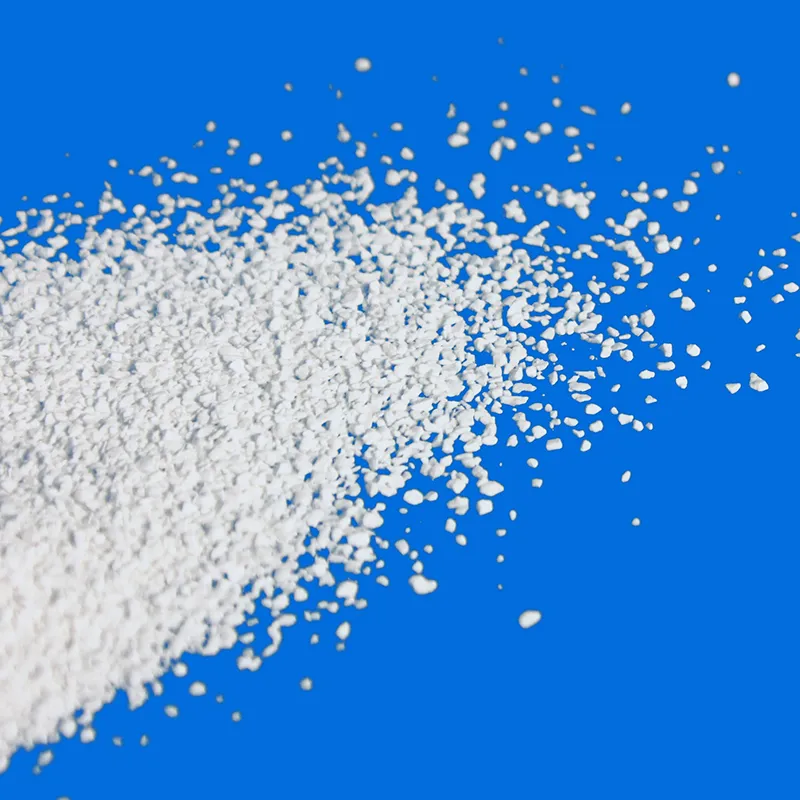
Preservation Techniques Using Sodium Benzoate and Potassium Sorbate in Food Products
The Role of Sodium Benzoate and Potassium Sorbate in Food Preservation
In our modern era, where convenience often takes precedence over time-consuming food preparation methods, the incorporation of preservatives in foods has become a standard practice. Two widely used preservatives are sodium benzoate and potassium sorbate, both of which play significant roles in enhancing the shelf life and safety of various food products.
Understanding Sodium Benzoate
Sodium benzoate is the sodium salt of benzoic acid, a compound that occurs naturally in some fruits, particularly cranberries. As a preservative, sodium benzoate is commonly utilized in acidic foods and beverages, such as carbonated drinks, fruit juices, and pickles. Its effectiveness as a antimicrobial agent is derived from its ability to inhibit the growth of bacteria, yeast, and molds. This compound operates best in environments with a pH of 4.0 or lower, making it ideal for acidic products.
The mechanism by which sodium benzoate exerts its preservative effects involves its conversion to benzoic acid in acidic conditions. This benzoic acid then penetrates the cell membranes of microbes, disrupting their metabolism and preventing them from reproducing. Because of this unique ability, sodium benzoate helps maintain the quality of food products, ensuring they remain safe for consumption over time.
Despite its benefits, the use of sodium benzoate has raised some health concerns. When combined with ascorbic acid (commonly known as vitamin C), sodium benzoate can form benzene, a suspected carcinogen. Consequently, regulatory agencies like the U.S. Food and Drug Administration (FDA) monitor the levels of sodium benzoate used in food products to ensure that they remain within safe limits.
The Role of Potassium Sorbate
Potassium sorbate is another popular preservative, primarily known for its efficacy against molds and yeasts. As the salt of sorbic acid, potassium sorbate has a wide range of applications in food preservation, particularly in dairy products, baked goods, and syrups. It is favored for its versatility and low toxicity, making it suitable for products intended for consumption by sensitive populations, such as children and pregnant women.
sodium benzoate and potassium sorbate

The effectiveness of potassium sorbate stems from its ability to inhibit the enzymatic processes within yeasts and molds, thus preventing spoilage. Unlike sodium benzoate, which is most effective in acidic environments, potassium sorbate can function across a broader pH range, making it a more versatile option for various food applications. Its unique properties allow it to integrate seamlessly into countless recipes, maintaining flavor while extending shelf life.
As with any food additive, potassium sorbate is not without controversy. Some individuals may experience allergic reactions to it, and while it is generally recognized as safe (GRAS) by the FDA, continued monitoring and research on its long-term effects are vital.
Synergistic Effects and Food Safety
The use of both sodium benzoate and potassium sorbate in food products is often more than just a straightforward preservation strategy; the two can be employed synergistically to maximize efficacy. For example, utilizing sodium benzoate in conjunction with potassium sorbate can provide a broader spectrum of protection against microbial growth, thus enhancing product shelf life.
Moreover, the combined use of these preservatives often allows food manufacturers to minimize artificial additives while still maintaining product safety and quality. This practice aligns with current consumer trends favoring cleaner labels and more natural ingredients in food products.
However, it remains crucial for consumers to be mindful of the additives in their foods. Reading labels and understanding the implications of consuming preserved foods is essential in making informed choices about one’s diet.
Conclusion
In summary, sodium benzoate and potassium sorbate serve critical roles in the preservation of foods, ensuring safety and extending shelf life. While both preservatives have demonstrated their effectiveness in combating microbial growth, their use also raises important health considerations that consumers should be aware of. As we continue to explore the balance between convenience and health in our food choices, a nuanced understanding of preservatives like sodium benzoate and potassium sorbate will empower consumers to make informed dietary decisions.
-
Pure Sodium Dichloroisocyanurate Dihydrate | Powerful DisinfectantNewsAug.29,2025
-
Industrial Chemicals: Quality & Purity for Every IndustryNewsAug.28,2025
-
Nitrile Rubber Honoring Strict Production StandardsNewsAug.22,2025
-
Aspartame Ingredients Honoring Food Safety ValuesNewsAug.22,2025
-
Fertilizer for Balanced Plant NutritionNewsAug.22,2025
-
Cyanide Gold Processing with High Purity AdditivesNewsAug.22,2025
-
Formic Acid in Textile Dyeing ApplicationsNewsAug.22,2025
Hebei Tenger Chemical Technology Co., Ltd. focuses on the chemical industry and is committed to the export service of chemical raw materials.
-

view more DiethanolisopropanolamineIn the ever-growing field of chemical solutions, diethanolisopropanolamine (DEIPA) stands out as a versatile and important compound. Due to its unique chemical structure and properties, DEIPA is of interest to various industries including construction, personal care, and agriculture. -

view more TriisopropanolamineTriisopropanolamine (TIPA) alkanol amine substance, is a kind of alcohol amine compound with amino and alcohol hydroxyl, and because of its molecules contains both amino and hydroxyl. -

view more Tetramethyl Thiuram DisulfideTetramethyl thiuram disulfide, also known as TMTD, is a white to light-yellow powder with a distinct sulfur-like odor. It is soluble in organic solvents such as benzene, acetone, and ethyl acetate, making it highly versatile for use in different formulations. TMTD is known for its excellent vulcanization acceleration properties, which makes it a key ingredient in the production of rubber products. Additionally, it acts as an effective fungicide and bactericide, making it valuable in agricultural applications. Its high purity and stability ensure consistent performance, making it a preferred choice for manufacturers across various industries.





